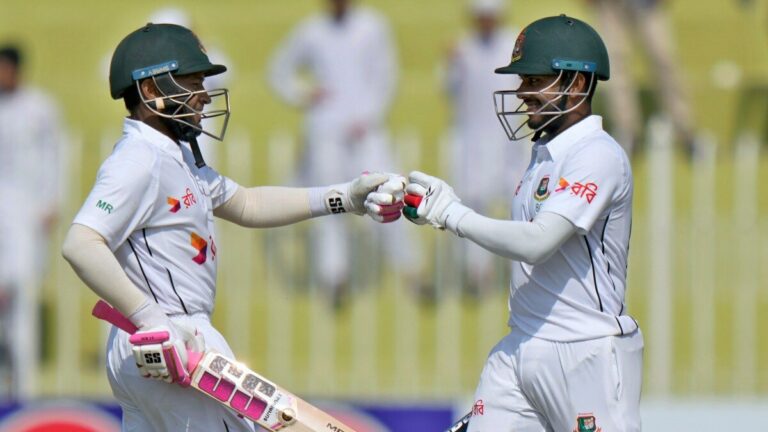The Role of Ethics in Data Usage for Cricket Analytics
allpaanel, laser247.com login, betbook247 login:The world of cricket has seen a significant transformation in recent years, thanks to the advancements in data analytics. Teams are now using data to make informed decisions on tactics, team selection, and player performance analysis. However, with this influx of data comes the responsibility to handle it ethically. The role of ethics in data usage for cricket analytics is crucial to ensure the integrity of the game and protect the privacy of players.
As cricket analytics continue to evolve, it is essential to recognize the ethical implications of using data to gain a competitive edge. While data-driven insights can provide valuable information to teams, it is essential to consider how this data is collected, stored, and used. Ethical considerations should be at the forefront of any data analytics strategy in cricket to uphold the principles of fair play and transparency.
One of the key ethical considerations in data usage for cricket analytics is the privacy of the players. As teams collect and analyze data on individual players, it is vital to ensure that this information is protected and used responsibly. Players have a right to privacy, and their data should not be shared or used in a way that could compromise their personal information or lead to any form of discrimination.
Another ethical consideration in cricket analytics is the potential impact on the game itself. Data can provide valuable insights into player performance, team tactics, and game strategies. However, there is a risk of over-reliance on data, which could diminish the role of intuition, experience, and human decision-making in the game. It is essential to strike a balance between data-driven insights and traditional cricketing knowledge to ensure that the game remains authentic and competitive.
Transparency is also a critical ethical consideration in data analytics for cricket. Teams should be transparent about the sources of their data, the methodologies used for analysis, and the decisions made based on this data. Transparency helps to build trust among players, fans, and stakeholders and ensures that data is used in a fair and accountable manner.
In addition to privacy, impact on the game, and transparency, the ethical use of data in cricket analytics also encompasses issues such as bias and discrimination. Teams must be aware of potential biases in data collection and analysis that could lead to unfair treatment or discrimination against certain players or groups. It is essential to implement safeguards to mitigate bias and ensure that data is used in a way that promotes equality and fairness.
Overall, the role of ethics in data usage for cricket analytics is fundamental to maintaining the integrity of the game and upholding the values of sportsmanship and fair play. By considering ethical considerations such as privacy, transparency, impact on the game, and bias, teams can harness the power of data analytics responsibly and ethically.
—
### The Importance of Ethical Data Usage in Cricket Analytics
The world of cricket has witnessed a significant shift in recent years, with the advent of data analytics revolutionizing the way teams approach tactics, player performance analysis, and team selection. While data analytics has undeniable benefits in enhancing performance and strategic decision-making, it is essential to consider the ethical implications of using data in cricket.
#### Privacy Concerns in Data Collection
As teams collect and analyze data on individual players, ensuring the privacy of players is paramount. Players have a right to privacy, and their data should be handled responsibly to prevent any unauthorized access or misuse. Safeguards should be put in place to protect the personal information of players and ensure that their privacy rights are respected.
#### Striking a Balance Between Data and Intuition
While data-driven insights can provide valuable information, it is crucial to strike a balance between data and intuition in cricket. Over-reliance on data could diminish the role of human decision-making, experience, and intuition in the game. Teams should leverage data to complement traditional cricketing knowledge rather than replace it entirely.
#### Transparency in Data Usage
Transparency is key in using data for cricket analytics. Teams should be open about their data sources, methodologies, and the decisions made based on this data. Transparency builds trust among players, fans, and stakeholders and ensures that data is used in a fair and accountable manner.
#### Mitigating Bias and Discrimination
Teams must be mindful of potential biases in data collection and analysis that could lead to unfair treatment or discrimination. Safeguards should be implemented to mitigate biases and ensure that data is used in a manner that promotes equality and fairness. By addressing biases, teams can utilize data analytics ethically and responsibly.
In conclusion, ethical considerations play a pivotal role in data usage for cricket analytics. By prioritizing privacy, transparency, balancing data with intuition, and addressing biases, teams can harness the power of data analytics while upholding the values of sportsmanship and fair play.
—
### FAQs
#### 1. Why is ethics important in data usage for cricket analytics?
Ethics ensure that data is handled responsibly, player privacy is protected, and the game remains authentic and competitive.
#### 2. How can teams ensure privacy in data collection?
Teams can implement safeguards to protect personal information, limit access to data, and adhere to privacy regulations.
#### 3. What role does transparency play in data analytics for cricket?
Transparency builds trust among stakeholders and ensures that data is used in a fair and accountable manner.
#### 4. How can teams mitigate bias in data analysis?
Teams can address biases by implementing tools to detect biases, diversifying data sources, and ensuring that data is used in a manner that promotes equality and fairness.







